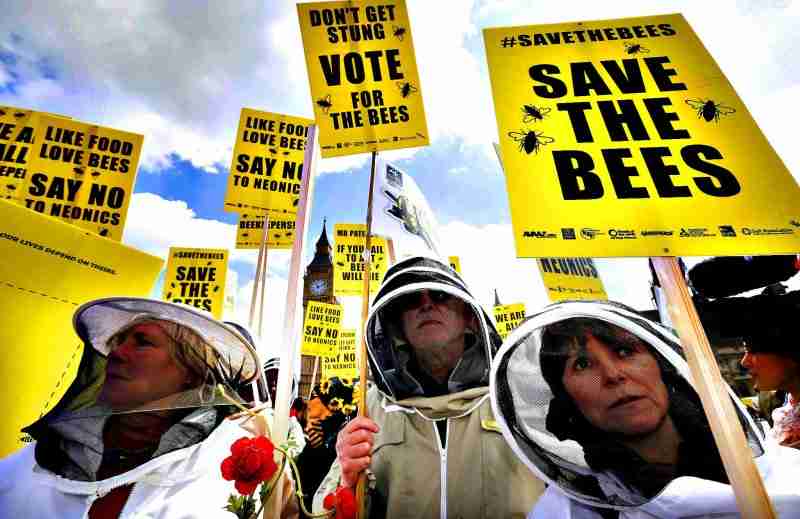An EU pesticide ban that was supposed to protect bees has done no such thing. All it does is damage farmers’ crops. The European Union’s addiction to the precautionary principle — which says in effect that the risks of new technologies must be measured against perfection, not against the risks of existing technologies — has caused many perverse policy decisions.
In both Britain and Germany, crops of canola are dying because of infestation by flea beetles. The direct cause of the problem is the two-year EU ban on pesticides called neonicotinoids brought in at the tail end of last year. The ban was justified on the precautionary ground that neonics might be causing the mass decline of bees.
Yet large-scale field studies and real world evidence consistently demonstrate that canola pollen does not contain a high enough dose to have an impact on bee colonies. The Department for Environment, Food and Rural Affairs (Defra) report on the subject concluded that lab studies used to justify the EU ban severely overdosed their bees and that bees are not affected by neonics under normal conditions. Australian regulators claim that neonics have actually improved the environment for bees by replacing older pesticides. In the US, the USDA and the EPA have so far resisted calls to ban neonics for much the same reason.
Even though there was literally no good science linking neonics to bee deaths in fields, they were banned anyway for use on flowering crops in Europe. Environmentalists pushing for the ban had asserted that removing neonics from the farmer’s toolbox would make no difference.The environmentalists were wrong. The loss of the canola crop this autumn is approaching 50 percent in Hampshire and not much less in other parts of the country. Since canola is one of the main flower crops, providing huge amounts of pollen and nectar for bees, this will hurt wild bee numbers as well as farmers’ livelihoods.
Farmers are instead reluctantly using pyrethroids. These older insecticides are less effective against pests (flea beetles are becoming resistant to them), more dangerous to other insects, especially threatening to aquatic invertebrates when they seep into streams and less safe to handle. So the result will be more insect deaths. In a panic, Defra has just announced that it will allow the use of two neonics, both are sprayed on the flowering crop, rather than used to dress seed! So they definitely can harm bees.
Beekeepers still face other problems. There was a severe problem eight years ago caused by the mysterious colony collapse disorder — a phenomenon that has happened throughout history and seems once again to have disappeared. Greens tried to blame it on genetically modified crops, but it happened in countries with no GM crops. The battle against the varroa mite continues to be hard. A newly virulent strain of tobacco ringspot virus has made the rare leap from infecting plants to infecting bees.
Having read again and again of the terrible decline of bumblebees, I set out to find some graphs or tables. I came away empty-handed. The claims of a continuing fall in the abundance of bumblebees over the past 20 years seem to be entirely anecdotal.
Read full, original article: Brussels and its busy bees are a perfect pest (subscription)



































